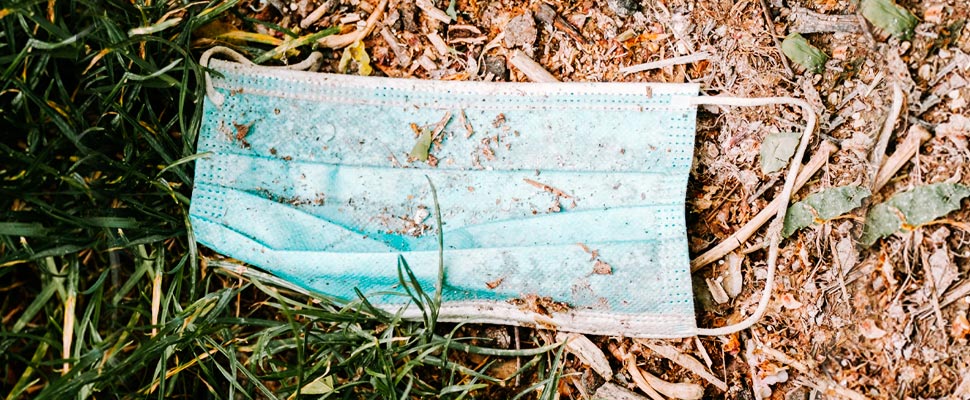Single-use plastics vs. Coronavirus
The endless use of disposable face masks and latex gloves because of the coronavirus has consequences for recycling and contamination.

The use of disposable plastic elements to combat contagion during the pandemic, being single use, has increased contamination. / Photo: Unsplash
LatinAmerican Post | Juliana Suárez
Listen to this article
Leer en español: Plásticos de un solo uso vs. Coronavirus
Although many images of the 'resurgence of nature' were seen in the first moments of the quarantine and improved air and water quality in some parts, this is not the complete picture of what the environment is facing at the same time that the world is facing the pandemic.
Many focused on this good news, despite knowing that these were temporary changes due to confinement and low production rates, but forgot that the number of disposable face masks and other biosecurity products that were started to be used would be just as immense as how much would end up in the oceans. It's that easy, the advance in recycling and the ban on single-use plastics went back years ago.
Environmental activists have gone to explore beaches and oceans to discover the inevitable: spaces filled with these products that have been used for biosecurity in COVID times. According to EuroNews, “French diver Laurent Lombard has recorded images near Antibes. The bottom of the Mediterranean Sea is already receiving masks and protective gloves discarded without care by its users”.
Likewise, Gary Stokes of the Oceans Asia organization found at least 70 items related to the pandemic on a beach on an uninhabited island in Hong Kong. This, only when walking a few meters from the beach, in February, days after the first case occurred in Hong Kong. Since then, the organization has toured the beaches finding these items.
A WWF report, World Wide Fund for Nature, warned that "if only 1 percent of facemasks were improperly discarded and dispersed in the wild, this would result in up to 10 million facemasks per month contaminating the environment environment. "This, while taking into account, which is probably much more than 1 percent will not be recycled and end up polluting. Just that small percentage, represent 40 thousand kilos of plastic scattered nature incorrectly.
In addition to this information, it should be considered that the use of masks and other biosecurity items that contaminate has increased in large amounts in recent months and is expected to continue increasing. The use of these implements is here to stay, at least for a while longer and their use will be even greater when all the countries begin to return to normality and come out of confinement, as currently there are still many people who do not have to use them constantly.
Beyond using these items, the pandemic has also resulted in the use of many other single-use plastics in large quantities: disinfectant containers, antibacterial or alcohol gels, protective suits, plastic bags being used to secure packages, among others.
Also read: COVID-19 lockdown reveals human impact on wildlife
To the increase of everything mentioned above, one more factor is added. Many companies or recycling initiatives have stopped its execution, they have had to stop plastic collections and thus, recycling has remained on a lower plane. This means that not only there are these new uses for plastics accumulating in nature to pollute, but the plastic that we normally use and which is usually recycled is also becoming more concentrated.
According to Euro News, the "United Nations estimates that 13 million tons of plastic are thrown into the sea each year and that half of the plastic produced worldwide is for single-use items." This makes plastic one of the main environmental problems. Therefore, although the importance and seriousness of the current world situation should not be underestimated, this side effect also has a great impact.
Following this impact, various organizations are trying to promote the use of reusable face masks . Although this does not solve the problem, it can help reduce the amount used and leave the use of these items only for medical personnel, who have to use disposable materials. However, if the above is achieved, there would still be other plastics that would continue to be used, as well as the difficulty of reactivating recycling initiatives.




